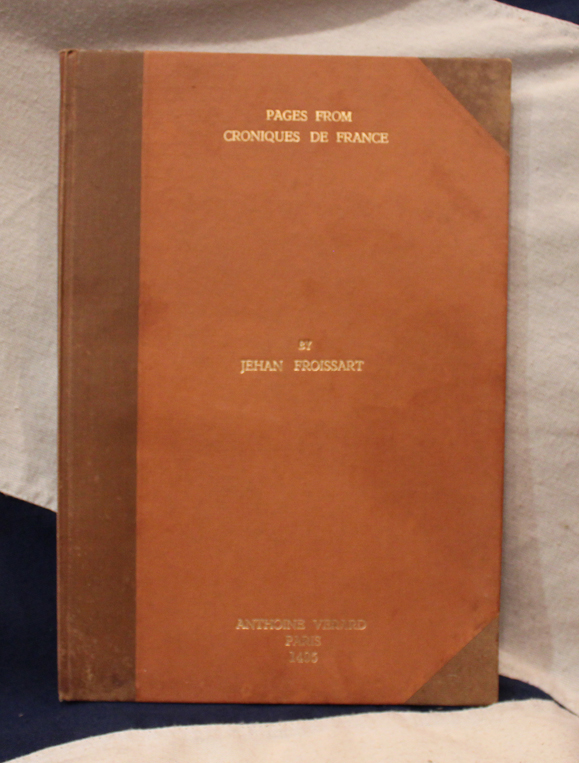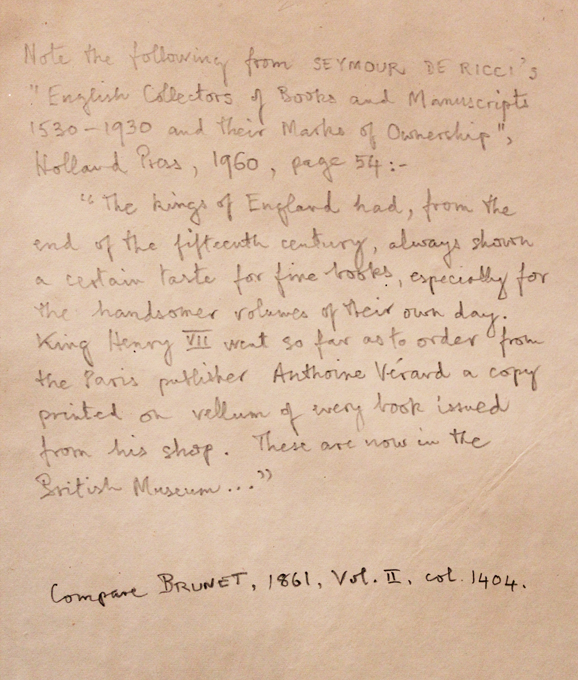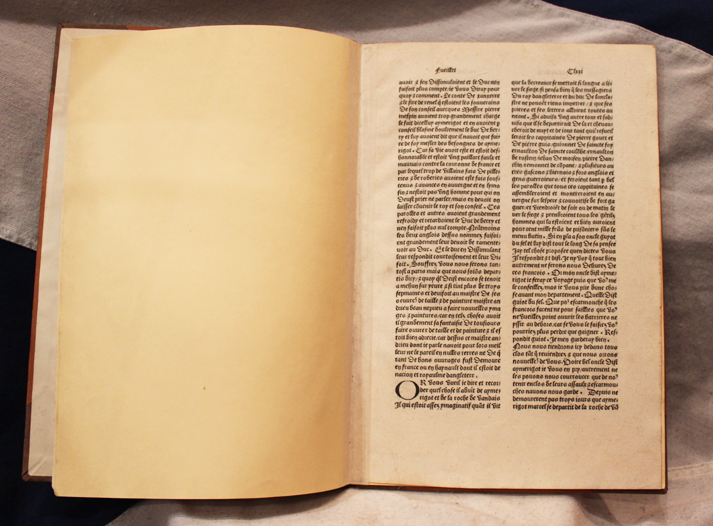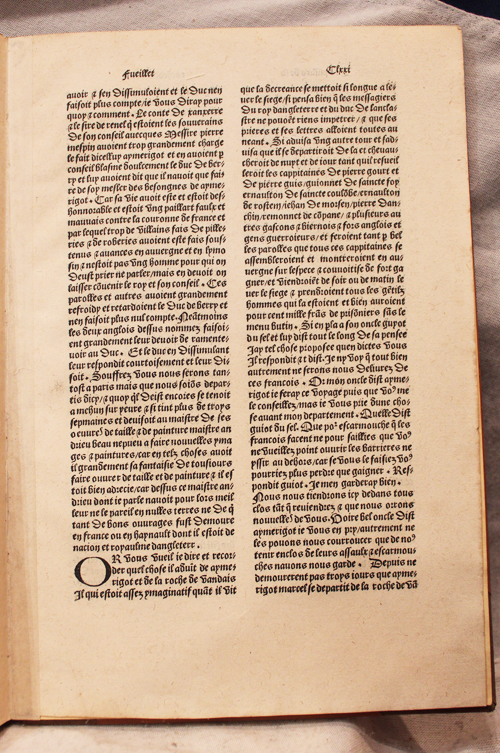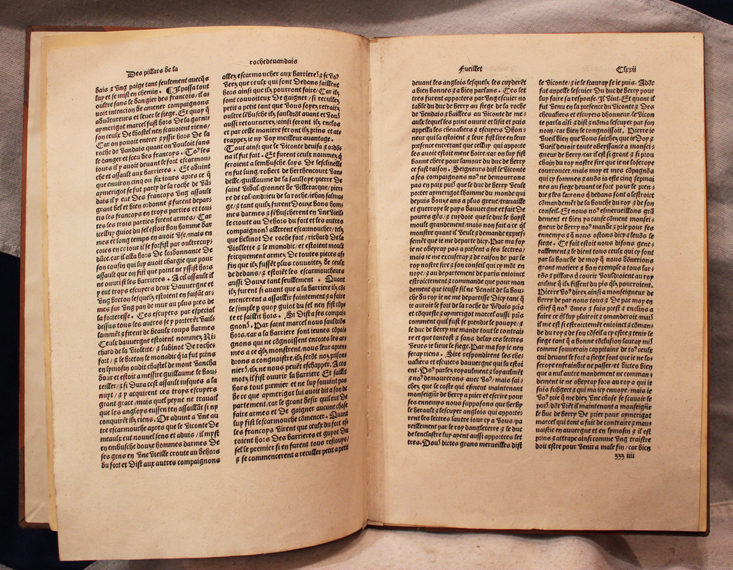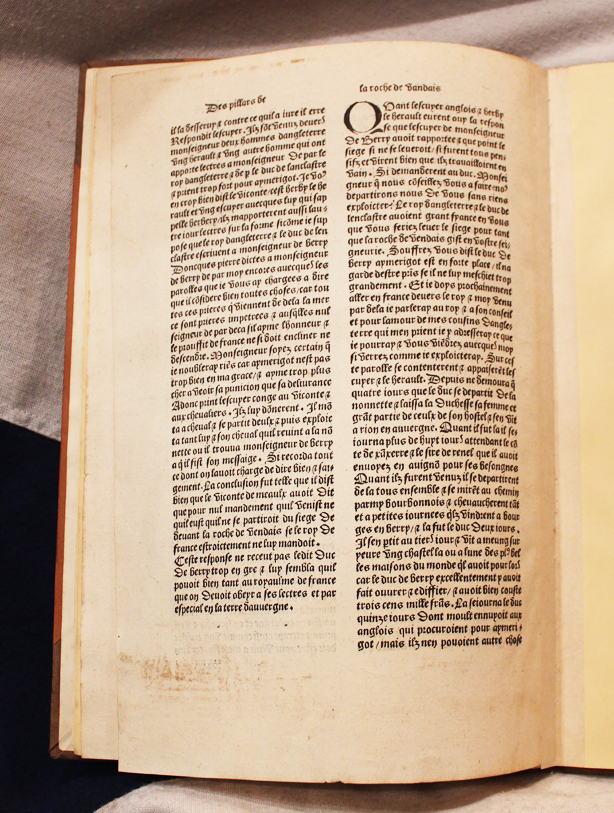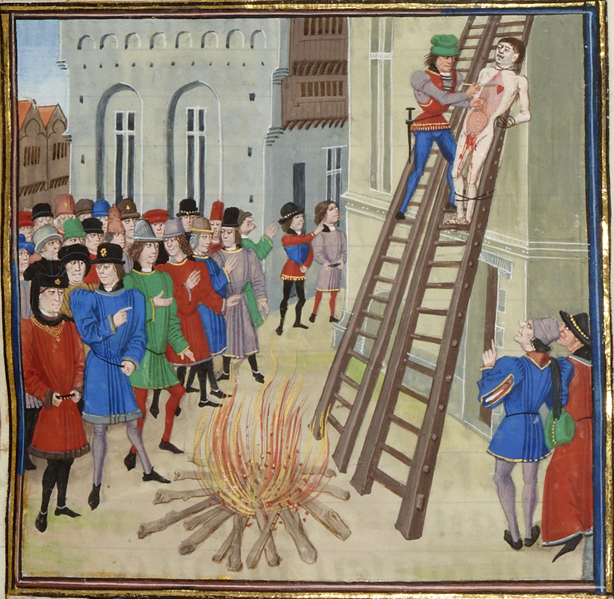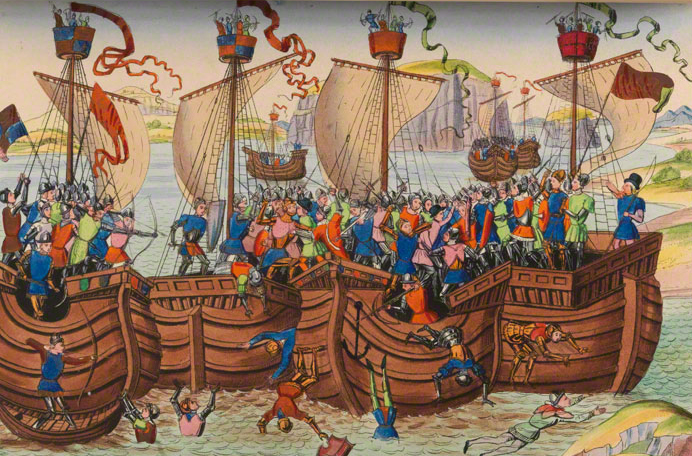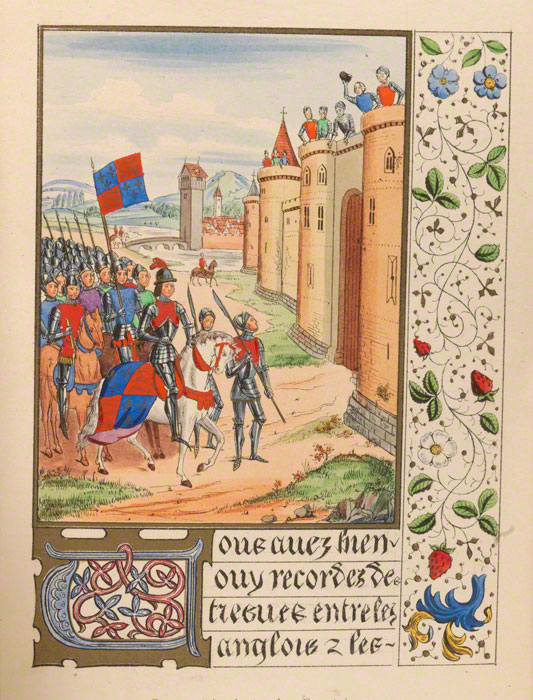Two Original Medieval Pages From Sir John Froissart's Chronicles Of France Printed in 1495, of the 14th Century, From The Printing Personally Ordered By King Henry VIIth Of England.
Two original loose pages from the original medieval 1495 printed book, mounted and bound in folio form, within cloth hard back binding with gold titles, 13 x 9 inches. Original medieval pages taken from the book printed in Paris in 1495 by Verrard. This particular printing [that these pages came from] was personally ordered in book form by King Henry VIIth of England from Anthoine Verard in Paris, and his copy now resides in the British Museum. Froissart's Chronicles were initially in manuscript form with fine illustration but were first transformed in to book form in Paris in 1495. Full and complete copies of this book, published by Anthoine Verard in 1495, and as was ordered by King Henry, can now achieve six figure sums. Froissart might be called the great interviewer of the Middle Ages. The newspaper correspondent of modern times has scarcely surpassed this medieval collector of intelligence. He traveled extensively in the various countries of Europe; he conversed with gentlemen of rank everywhere; and he had the remarkable knack of persuading those about him to divulge all he wanted to know. He learned the details of battles from both sides and from every point of view. He delighted in the minutest affairs of every cavalry skirmish, of the capture of every castle, and of every brave action and gallant deed. He lived from 1337 to about 1410, and wrote chiefly of contemporaneous events. The Chronicles are universally considered as the most vivid and faithful picture we have of events in the 14th century. As a picture of the most favorable side of chivalry, the work has no equal (Adams, Manual of Historical Literature, 334-35). There has never been any difference of opinion on the distinctive merits of this great work. It presents a vivid and faithful drawing of the things done in the 14th-century. No more graphic account exists of any age. No historian has drawn so many and such faithful portraits? (Britannica). The Chronicles were originally circulated in manuscript form, with the first printed version appearing around 1498 in Paris. Froissart was one of the greatest of the medieval European writers. In his own century, -the fourteenth it is not easy to see anyone who can be put beside him as a prose-writer. But the literary language of the day was still predominantly verse, and prose was still regarded as something of a utility medium. Because
of this and because Froissart is known principally for his descriptions of warfare - the greatest and most famous chronicle of French and English medieval history. Jean Froissart (1338-C.1410) is the supreme annalist of medieval chivalry, historian, poet, traveller, friend of Chaucer, and by far the most entertaining source for our knowledge of the Hundred Years’ War. It is as much a profane romance as a history book. It is filled with delightful stories and adventures reported first-hand.
Froissart was born in Valenciennes. At the age of 18 he came to England where he entered the service of Queen Philippa of Hainaut, acting as her secretary and private diplomat. In 1366 he set off again on his long travels, settling for a time in the Duchy of Brabant. Much of his great chronicle was probably written in his home town of Valenciennes, and he continued it over his life to the events after the murder of Richard II in 1399.
Froissart began writing Book I sometime after 1370, possibly at the request of Robert de Namur, to whom the earliest version was dedicated. It covers the period from 1322 to 1377, including the accession of Edward III, his campaign in Scotland and his marriage to Philippa of Hainault, the battle of Sluys, the Siege of Tournai, the Breton war of succession, the Battle of Crécy, the Siege of Calais, the battle of Neville’s Cross, the battle of Winchelsea, the battle of Poitiers, Etienne Marcel’s merchant revolt in Paris, the Black Prince’s campaigns in the south of France, the peace of Brétigny, the death of king John II of France, the battle of Cocherel, the battle of Auray, the Castilian Civil War, the battle of Chizé, the deaths of the Black Prince and Edward III and the accession of Richard III. We show in the gallery three hand coloured illustrations that have been used to illustrate the various versions of his works in manuscripts or books. One shows the execution of Hugh the Younger Despenser.
Code: 20579
795.00 GBP

